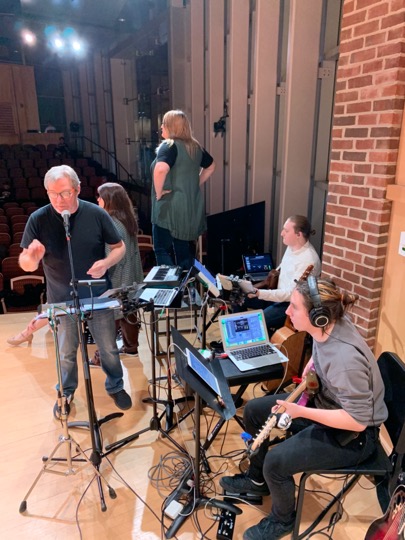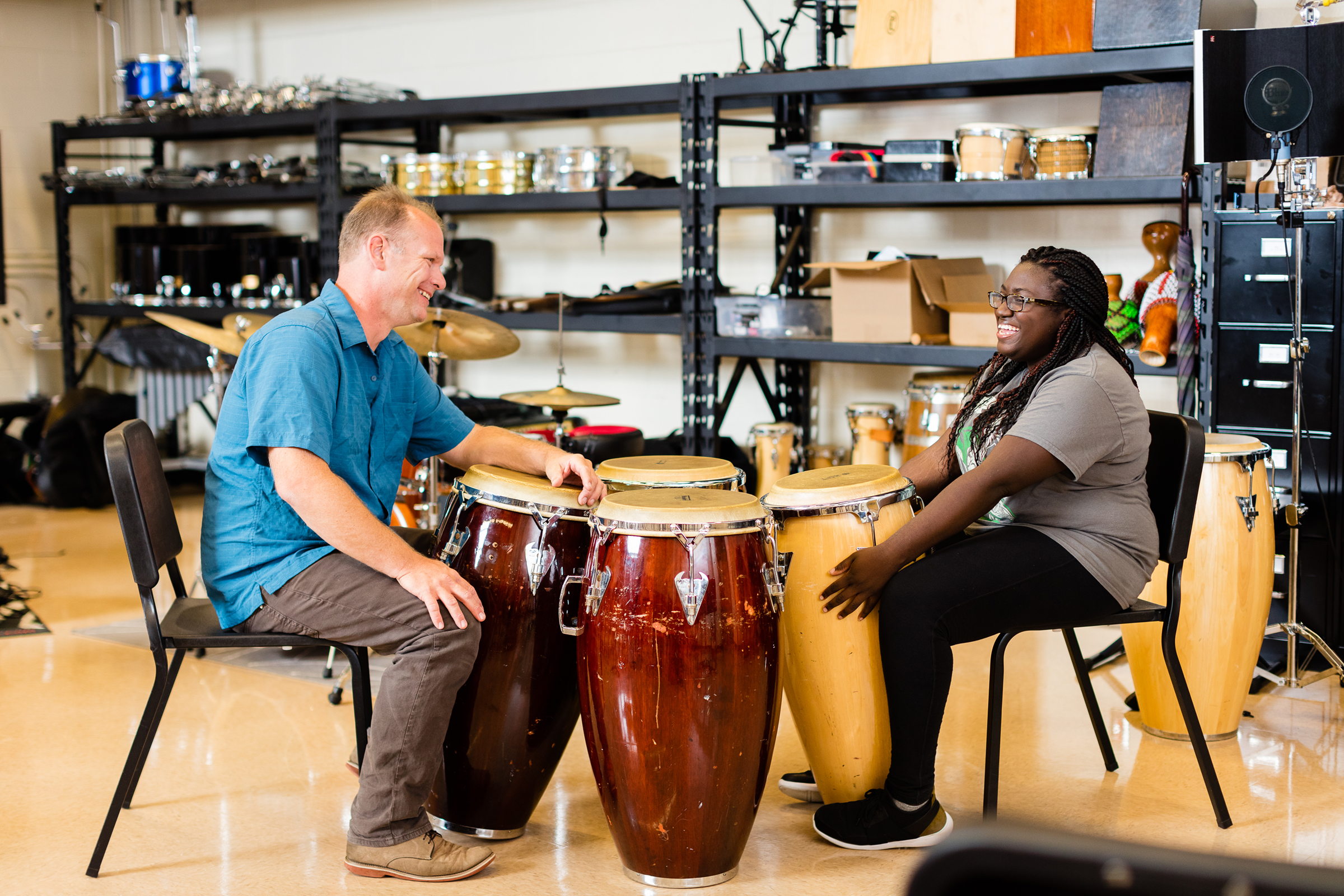

Want to join a performing ensemble?
Ensembles are a great way for students of all majors to make music with others. From musical theater to symphonic band, Orchestra to Steel Band. No matter your level of experience or musical interests, we have a place for you to perform!
Ensembles
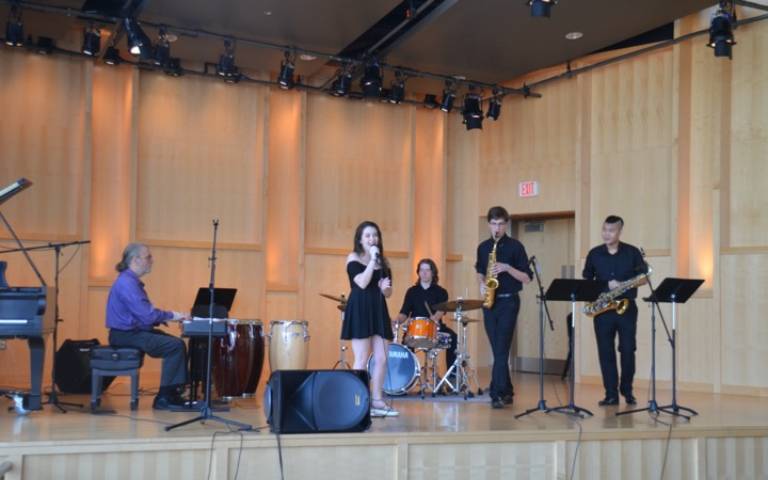
The Music Department welcomes students from all majors to participate in our ensemble
and applied music programs. The majority of the ensembles allow any students to join
who are interested. If you would like to join an ensemble, please contact the ensemble
director listed below or the chair of the department (John%20Leupold) with any questions. Ensembles receive 1 academic credit.
Large Ensembles
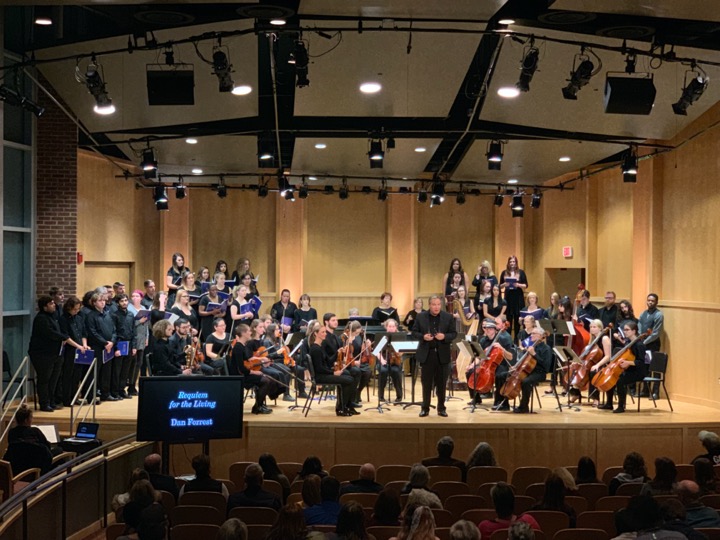
This course is appropriate for the following instruments: flute, oboe, clarinet, bassoon, saxophone, trumpet, horn, trombone, euphonium, baritone, tuba, and percussion. Students should have played in concert band, marching band, jazz band, or in the brass, woodwind, or percussion sections of a full orchestra in high school.
- Instructor: Jon%20McCollum
- Time: Tuesdays, 6:30-8:30
- Location: Gibson 116
The chorus is open to all Washington College students, and focuses on a mixture of classic choral repertoire, opera and operetta choruses, Broadway, pop, and World Music. Music reading ability is not required.
- Instructor: Ernie%20Green
- Time: Monday/Wednesday 4:00-5:30
- Location: Hotchkiss
The String Ensemble studies and performs orchestral music from various musical periods. This course is appropriate for the following instruments: violin, viola, cello, and bass.
- Instructor: Kim%20McCollum
- Time: Tuesdays 7:00-8:30
- Location: Hotchkiss
World Music Ensembles
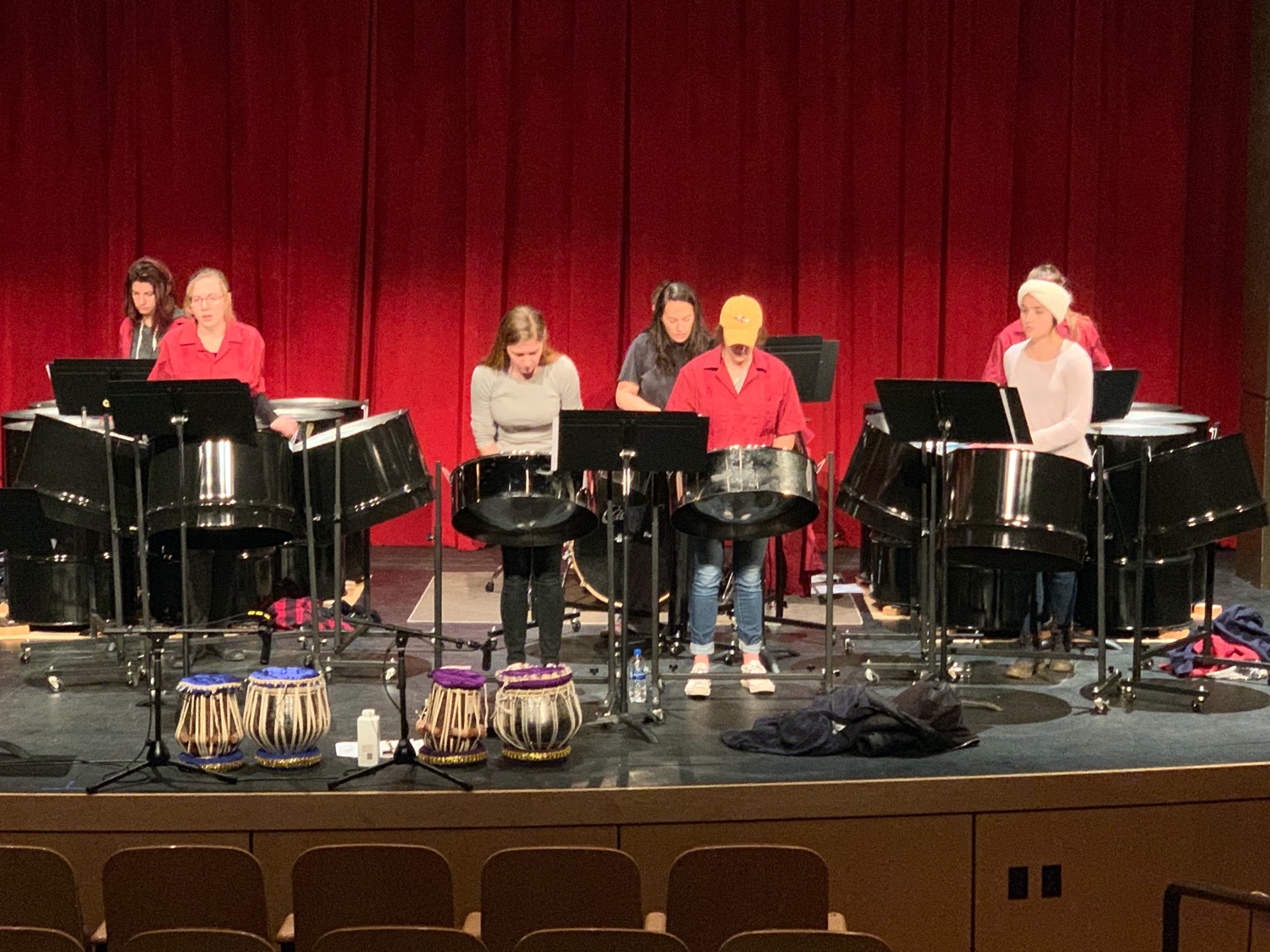
This ensemble focuses on learning to perform the panpipe music of South American Andean communities, a diverse culture comprising the South American countries of Bolivia, Columbia, Ecuador, and Peru. Open to all. No prior musical experience required.
- Instructor: Lori%20Kesner
- Time/Location: TBD
The Washington College Steel Band (Steel Revolution) offers students an opportunity to explore the Trinidadian steel band tradition, as well as classical and popular arrangements and transcriptions. Students learn to perform on steel band instruments and study the social, historical, and cultural context of the ensemble. Readings, recordings, and video viewings supplement in-class instruction. The ensemble presents public performances both on and off campus.
- Instructor: John%20Leupold
- Time: TBD
- Location: Gibson 116
By the Edo period (1603-1868), three instruments had emerged from various directions to become popular among the Japanese people. The koto, a 13-string zither, the shamisen, a 3-string banjo-like instrument, and the shakuhachi, a Zen Buddhist bamboo flute. In this new ensemble, students will be introduced to these instruments, have the opportunity to research, write about, and learn how to perform on an instrument of the student’s choice. Students will also learn the unique notation systems of each instrument, as well as gain a deep understanding of Japanese traditional arts in relation to the social, ideological, and cultural development of Japanese traditional aesthetics.
- Instructor: Jon%20McCollum
- Time/Location: TBD
The ensemble focuses primarily on the Cuban drum and song traditions associated with rumba and Santeria. Musical literacy is not a requirement; instead, rhythms and melodies will be transmitted via the oral traditions that are prevalent in Cuba. Membership is open to all students.
- Instructor: Ken%20Schweitzer
- Time Song: Tuesdays 4:00-5:00
- Time Drums: Tuesdays 5:15-6:15
Chamber Ensembles
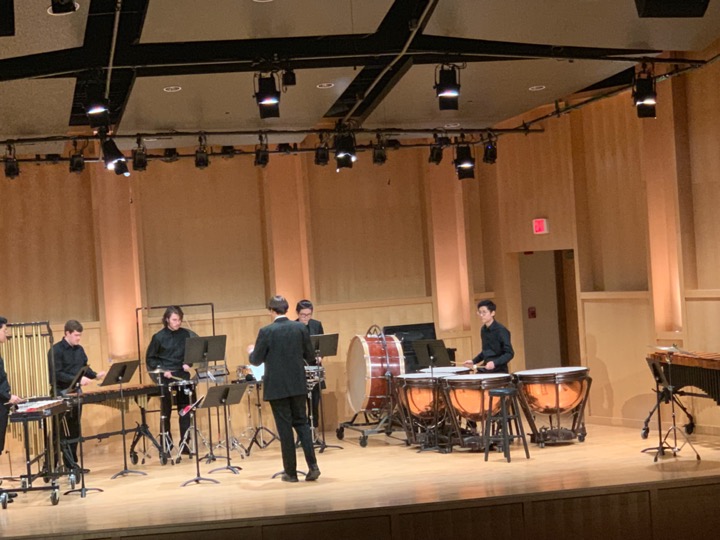
Playing jazz and big band standards, this ensemble is appropriate for the following instruments: saxophone, trumpet, trombone, piano, guitar, bass, and drum set. Students should have played in concert band or jazz band in high school.
- Instructor: Ken%20Schweitzer
This course is appropriate for any student interested in learning the music/repertoire of the medieval period. Various early instruments including: wood recorders (soprano, alto, tenor, and bass), sackbuts, crumhorns, shawms, and percussion are lent to students to learn and perform. The instructor provides instruction on these instruments. Students should be able to read music notation.
- Instructor: Jon%20McCollum
This course is appropriate for students interested in playing in a small, 4-6 piece jazz combo setting. The Washington College Jazz Combo allows advanced jazz students to perform various styles of jazz literature, including standards, original compositions and arrangements. Ample opportunity is given for improvisation. The Combo presents programs each semester and performs on and off campus throughout the year.
- Instructor: Joe%20Holt
The percussion ensemble showcases music that explores the many different colors, timbres, and diversity of sounds that these instruments are able to produce. A basic ability to read music is needed. No previous percussion experience is necessary, though it is helpful.
- Instructor: Eric%20Plewinski
Depending upon enrollment, this ensemble could be a string trio, string quartet, piano quintet, or other mixture of string instruments. Repertoire is chosen generally from the Baroque, Classical, and Romantic Periods of music.
- Instructor: Kim%20McCollum
A collaborative ensemble which collectively composes music for the ensemble to perform at various locations around campus. Students use a variety of technologies to create live performances.
- Instructor: Ken%20Schweitzer
This chamber ensemble is comprised solely of guitarists who wish to have the experience of playing in a guitar ensemble.
- Instructor: Alec Green
The rock ensemble features a flexible line-up of musicians depending upon the repertoire selected. Performances feature music from the 60s through modern times and are generally selected by the members of the ensemble.
- Instructor: Ken%20Schweitzer
This string ensemble features repertoire for cellos and basses. Pieces are chosen generally from the Baroque, Classical, and Romantic Periods of music, as well as contemporary compositions and transcriptions.
- Instructor: Diana%20Golden%2C%20D.M.A.
Depending upon student enrollments, ensembles of various types could be created including woodwind quartet/quintet, saxophone quartet, brass quartet/quintet, etc.
- Contact John%20Leupold if interested.
Musical Theater
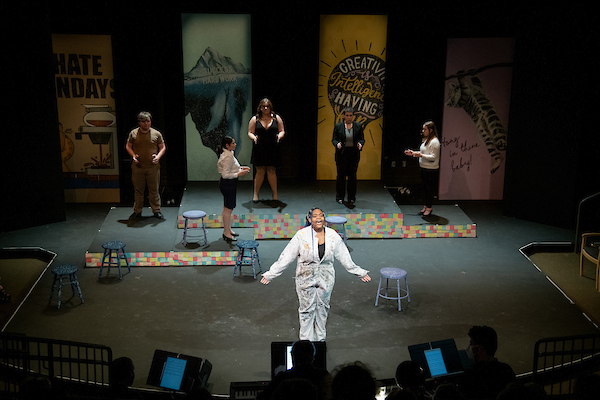
All participants in the musical production of the semester enroll in this course to receive Fine Arts credit for their involvement in the production.
Provides musical accompaniment for the musical production during the semester. Instrumentalists are selected based upon the needs of the book and through audition.
- Instructor: Ken%20Schweitzer
